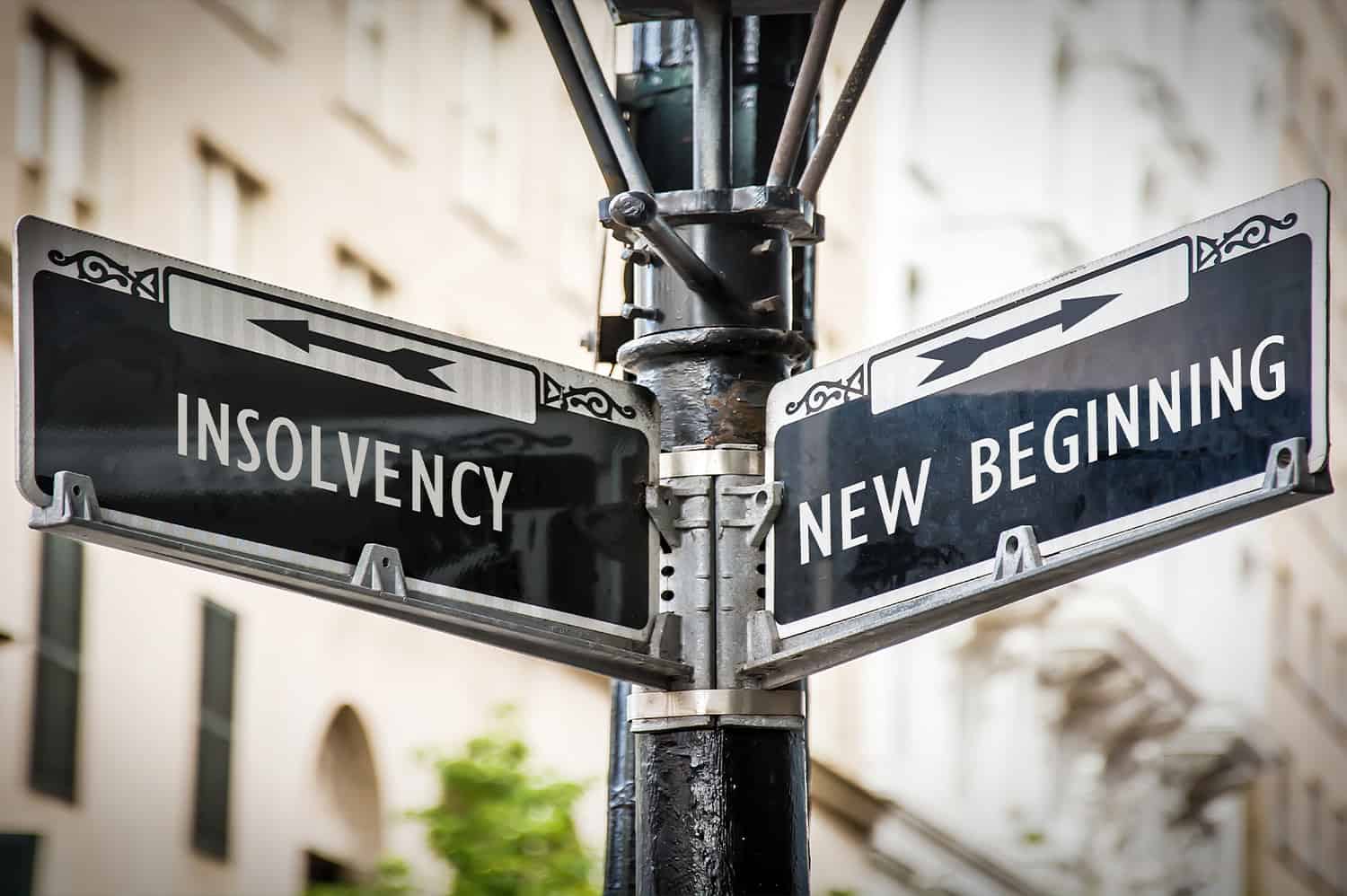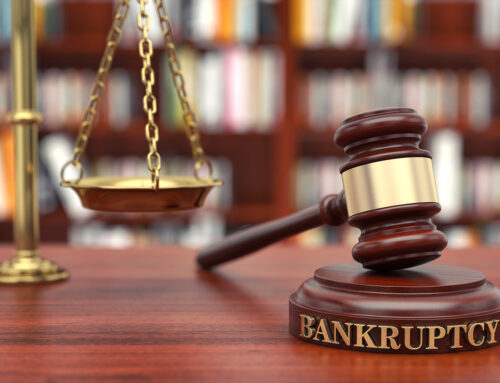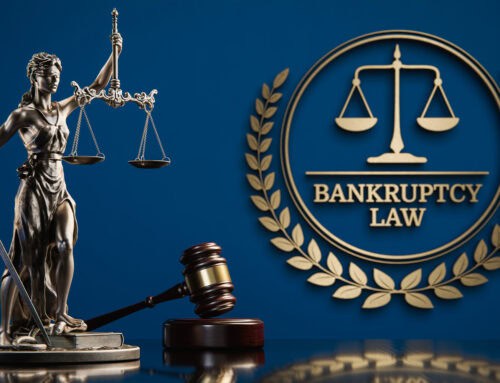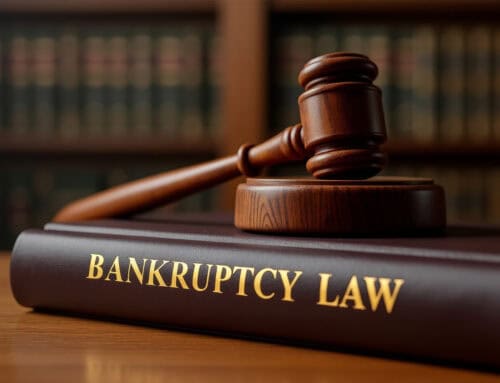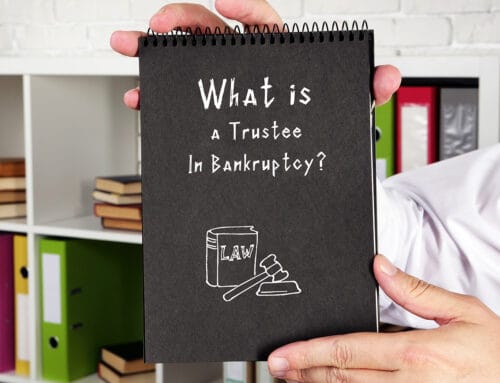Insolvency Waves Red Flags Regarding Future Bankruptcy
Nobody wants to face insolvency or end up in bankruptcy court, but serious money problems can sometimes arise before you realize what’s happening. While these financial terms are often related, they are definitely not the same. Recognizing insolvency as a treacherous step along the path to bankruptcy can alert you to financial problems and address them before it’s too late.
Meanings of Insolvency and Bankruptcy
Insolvency is a financial condition in which you simply do not have enough money to pay all your bills, including credit card, mortgage or other loan payments. You may take actions to temporarily solve the problem, such as borrowing more money, selling a collectible you own, or negotiating with a creditor for additional time to pay.
Bankruptcy is a legal process, governed by federal law, which is often a last-ditch attempt used to address insolvency when all other efforts fail. Depending on your situation, you may file under Chapter 7 or Chapter 13, but both types require financial disclosures that prove you are insolvent.
Two Measures of Insolvency
While insolvency refers to a fiscal dilemma where you cannot meet your financial obligations when they are due, you can categorize this monetary problem in two different ways.
Cash-Flow Insolvency
If your mortgage payment or minimum credit card payment is due, but you do not have enough funds in any bank account to make an online payment or write a check, you are cash-flow insolvent. Unless you still have borrowing options or something to sell quickly so you can come up with the money, you will miss your payment and probably fall into the hands of a debt collection agency.
Balance-Sheet Insolvency
Although accountants often use balance sheets to calculate the net worth of a business, this organized statement also provides a clear picture of an individual’s finances. A personal balance sheet tallies everything you own and assigns a realistic value to each asset. It also lists the outstanding amounts of your debts. If your assets total more than your outstanding debts, the balance is your net worth. If your debts outweigh the value of your assets, you are balance-sheet insolvent.
Reasons Insolvency Occurs
Sometimes insolvency develops over time from poor choices. Insolvency may also occur unexpectedly from reasons beyond your control. Factors contributing to individual or business insolvency are nearly endless:
- Unexpected illness or injuries
- Business closure, layoff or reduction in work hours
- Fires, hurricanes or other natural disasters
- Change in marital status
- Overuse of credit cards or payday loans
- Failure to budget
Ways To Address Insolvency
No matter how monetary issues come about, it’s essential to keep close tabs on your financial position and take action as soon as problems arise. If you just keep hoping for things to improve, your headaches only multiply. Even if you have enacted some of these measures already, review them once more for possibilities:
Cut Expenses
It may seem impossible to trim expenses in a time of rampant inflation but think of it as bare-bones living for a short time. Act like Scrooge when setting the thermostat, using water or doing laundry. Eliminate, cut down or substitute wherever possible. Do without fast food and restaurants, cable and streaming services, or expensive gym memberships. While lifestyle changes are usually harder on children, making it a family adventure can help.
Increase Income
Get creative about ways to bring in extra cash. Check for overtime possibilities or different projects to take on at work. Look for a part-time evening or weekend job, especially in sectors such as service industries still struggling to find workers. Search the internet for possible side hustles to pursue.
Downsize or Sell Assets
Sometimes it’s necessary to make painful sacrifices to get out of debt. Consider moving to a smaller house or apartment or finding living accommodations in a less desirable location. If you have two vehicles, see if you and your family can manage with just one by utilizing public transportation and carpools. Look for recreational items to sell such as boats, campers, golf clubs or exercise equipment.
Contact Creditors
The one thing you should never do is miss a payment without calling your creditor and explaining the situation. Creditors may not appreciate late or missed payments, but they know working with debtors to help them get back on track is better than losing money if the person pursues bankruptcy.
Bankruptcy as a Solution
Sometimes the best way out of insolvency involves filing for bankruptcy, but you should never make this decision without considering long-term consequences and reviewing other alternatives. Contacting an experienced attorney or debt relief agency can help you determine the best way to move forward in your individual circumstances.
Our Offices Can Help Review Your Situation
If you are facing severe money problems and believe you are insolvent or contemplating bankruptcy, the Law Offices of Brent D. George can help you sort through your financial complications. We can help evaluate your options and consider the advantages and consequences of each solution. Don’t wait another day to book a free consultation.
Disclaimer: This article is intended for informational purposes only and does not constitute legal advice. For personalized assistance, please contact our office at (805)494-8400.

